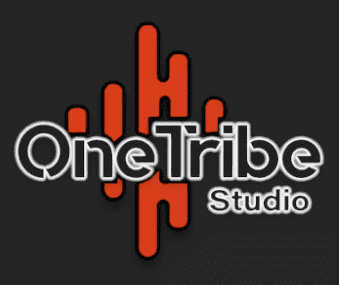The Democratization of Musical Production


The advent of affordable software and equipment has radically transformed music production, once reserved for an elite.
This revolution has opened up new perspectives in the music industry.
This therefore allows emerging artists to express themselves in a creative and diverse way.
Explore with us the different dimensions of this democratization.
Accessibility of Production Software
The emergence of affordable music production software has been the catalyst for this democratization.
Renowned platforms such as Studio One , Cubase,GarageBand, FL Studio and Ableton Livehave led the way in offering professional features at affordable prices.
This accessibility has therefore truly transformed the way in which music creators approach their art.
By eliminating technological barriers, this software has allowed amateurs and emerging artists to quickly take the plunge into music production without requiring advanced technical skills.
The user-friendliness of these tools has therefore democratized access to musical creation.
The advent of online learning communities, offering detailed tutorials and interactive forums, has increased democratization.
Aspiring producers can now benefit from rich educational resources to hone their skills at their own pace.
Affordable and Efficient Equipment for Production
Democratization also extends to recording equipment.
Reputable brands now offer professional quality audio interfaces at affordable prices.
It revolutionized the way artists record their music.
At the same time, the advent of affordable MIDI controllers and high-quality virtual instruments has greatly expanded the creative horizons of amateur producers.
These tools allow you to explore a variety of sounds without having to invest in expensive equipment.
Virtual instruments offer a wide sound palette, from the simulation of classic instruments to electronic experiments.
This therefore allows artists from all musical disciplines to find their own creative voice.
Online Training and Communities: Learn Production
Music education has never been more accessible thanks to numerous online educational resources.
Specialized courses and tutorials covering various aspects of music production therefore allow enthusiasts to develop their skills at a pace suited to their commitments.
Supportive virtual communities play a crucial role in collaborative learning.
Discussion forums, social media groups and dedicated platforms facilitate exchanges between budding artists, therefore encouraging the sharing of knowledge and experiences.
The rise of virtual mentors and online collaborations has expanded learning opportunities.
Established artists often share their knowledge and offer advice through virtual mentoring sessions.
This creates a culture of mutual support and sharing within the musical community.


Impact on Musical Diversity
The democratization of musical production has led to the emergence of new musical genres and styles.
Artists from diverse cultural backgrounds can now create and share their music.
This contributes to a richer and more diverse music scene.
Marginalized voices, often excluded from traditional production circuits, find an equitable platform to express their experiences through music.
Cultural and social diversity flourishes therefore in a more inclusive musical landscape.
Democratization has also reshaped quality standards.
While high-quality recordings remain essential, creativity and authenticity are becoming increasingly important.
This has therefore broadened the definition of what is considered “good production”.
Production Challenges and Limitations
With the ease of access to musical production, the challenge emerges regarding the quality of creations.
The overabundance of content can sometimes lead to a dilution of originality, highlighting the importance of finding the balance between quantity and quality in this democratized environment.
The proliferation of new creations can lead to market saturation.
Artists must navigate a competitive landscape, highlighting the need for an effective promotion strategy to stand out amidst the constant noise.
While democratization allows everyone to become a creator, it also requires versatile skills.
Artists often have to play multiple roles, from production to promotion, requiring a holistic understanding of the music industry.
Music Production: Transformation of Business Models
The democratization of music production coincides with the emergence of monetization platforms such as Bandcamp, Patreon and others.
Artists now have the opportunity to earn direct income from their work, reducing reliance on traditional business models.
However, the question of fair remuneration persists.
While many independent artists can monetize their music, there is debate over how to ensure that everyone in the music chain is fairly compensated, including composers, audio engineers and other contributors.


New Forms of Creation in Production
Democratization has given rise to a Do It Yourself (DIY) music scene, where artists are able to create, produce and distribute their music independently.
This fuels a more authentic, unfiltered aesthetic in music production.
The accessibility of production tools encourages experimentation.
Artists are more willing to push the boundaries of established genres, exploring new sounds and musical forms. This leads to artistic diversification and the emergence of innovative creations.
Music Production: Impact on Consumption
Democratization is changing the dynamics of music consumption.
Listeners become active participants in music discovery, often by directly supporting independent artists, creating a more engaged community.
The proximity between artists and their audience is increasing. Social platforms allow artists to share their creative process, establishing a more direct and personal connection with their audience. This redefinition of the relationship creates a more enriching listening experience.
Emerging Technologies in Music Production
Artificial intelligence is transforming music production by automating certain aspects of the creative process.
Sophisticated algorithms can generate compositions, assist in the creation of melodies, and even influence the mixing process, opening new avenues for sonic exploration.
Virtual reality offers innovative possibilities for musical experiences.
Artists are exploring the creation of immersive virtual environments where listeners can interact with music in entirely new ways, pushing the boundaries of creativity and engagement.
Ethical and Creative Challenges in the Field of Music Production
While democratization facilitates access to diverse musical genres, it also raises questions about cultural appropriation.
It becomes crucial to encourage diversity while respecting cultural authenticity and avoiding stereotypical reproduction.
The pursuit of virality can put creative pressure on artists, encouraging them to follow trends rather than create authentically.
Managing this pressure while preserving artistic integrity becomes a challenge within this new era of democratized music production.


Conclusion
The democratization of music production through affordable software and equipment opens up new opportunities for artists around the world.
This revolution not only allows for increased creativity but also a diversification of the music scene, giving voice to those who were once marginalized. As accessibility increases, the music industry is moving toward a more inclusive and innovative era.
The combination of accessible educational resources, powerful tools and a collaborative community creates an ecosystem conducive to the creative emancipation of everyone.
Musical democratization is not just a technical development but a cultural revolution that redefines the way music is created, shared and enjoyed on a global scale.
